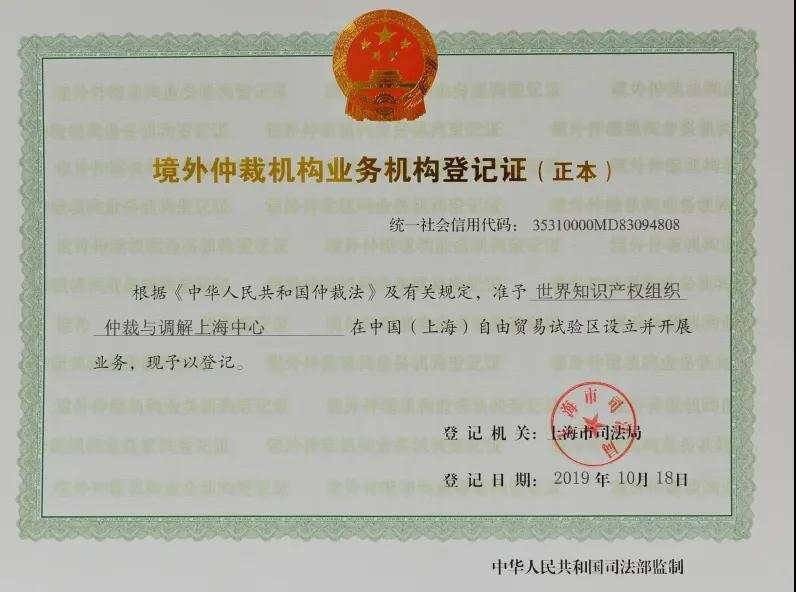
The WIPO Arbitration and Mediation Shanghai Service (世界知识产权组织仲裁和调解上海中心), the first business organization of foreign arbitration institutions in China, has begun handling cases in 2020.
In an article on the Chinese government's efforts to gradually open the arbitration market published in October 2019, Dr. Zhang Jian (张建) wrote in an earlier post, “In fact, for quite a long time, China did not allow foreign arbitration institutions to carry out any activities in mainland China, but only allowed the parties involved in foreign-related cases to seek arbitration abroad. Since then, China had gradually allowed foreign institutions to set up representative offices in mainland China, but the functions of which were mainly limited to publicity, promotion, communication, and liaison activities, with arbitration business excluded. It was not until July 2019 that China formally allowed foreign arbitration institutions to set up business organizations in mainland China to carry out arbitration activities.”
Subsequently, as a first result of the Chinese government’s efforts to achieved its goal, on 18 Oct.2019, with the approval of China's Ministry of Justice, the first business organization of foreign arbitration institutions, i.e. the WIPO Arbitration and Mediation Shanghai Service, came into existence upon the registration in the Shanghai Judicial Bureau.
The image below is the registration certificate of this organization issued by the Shanghai Judicial Bureau. The official name of the certificate is "Registration Certificate of Business Organization of Foreign Arbitration Institutions".

The organization’s business covers arbitration and mediation in cases concerning foreign-related intellectual property disputes in China, including:
(1) case acceptance, hearing, mediation, deliberation, and award;
(2) business consultation and guidance;
(3) business seminars, training, communication, and promotion.
As Dr. Zhang Jian also explained in another earlier post, the awards by arbitrators of foreign arbitration institutions shall be considered as Chinese arbitral awards for enforcement, rather than foreign arbitral awards whose recognition and enforcement shall be subject to the New York Convention. As a consequence, compared to foreign arbitral awards, Chinese arbitral awards will be subject to stricter review under Chinese domestic law by Chinese courts.
Therefore, awards made by the WIPO Arbitration and Mediation Shanghai Service or other business organizations of foreign arbitration institutions operating in China will also be subject to stricter review as Chinese arbitral awards.
We expect more foreign arbitration institutions to settle in China and will closely observe how Chinese courts review their awards.
Photo by Wu Dae (https://unsplash.com/@wudae_wing_chun) on Unsplash
Contributors: CJO Staff Contributors Team








